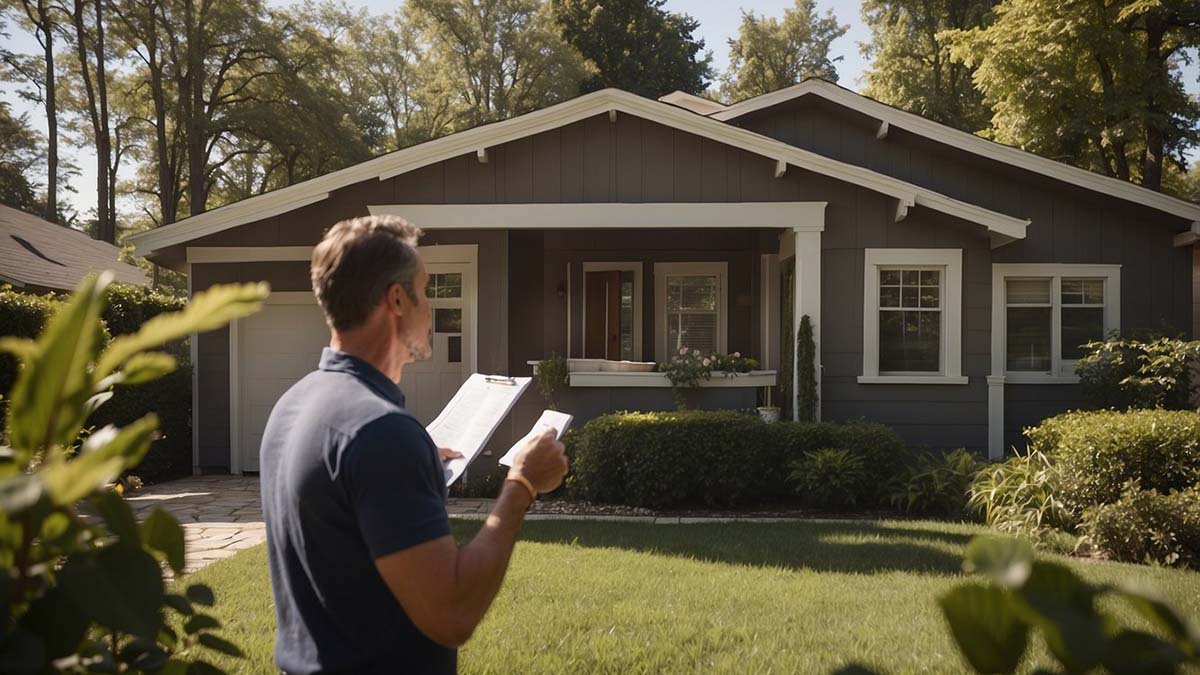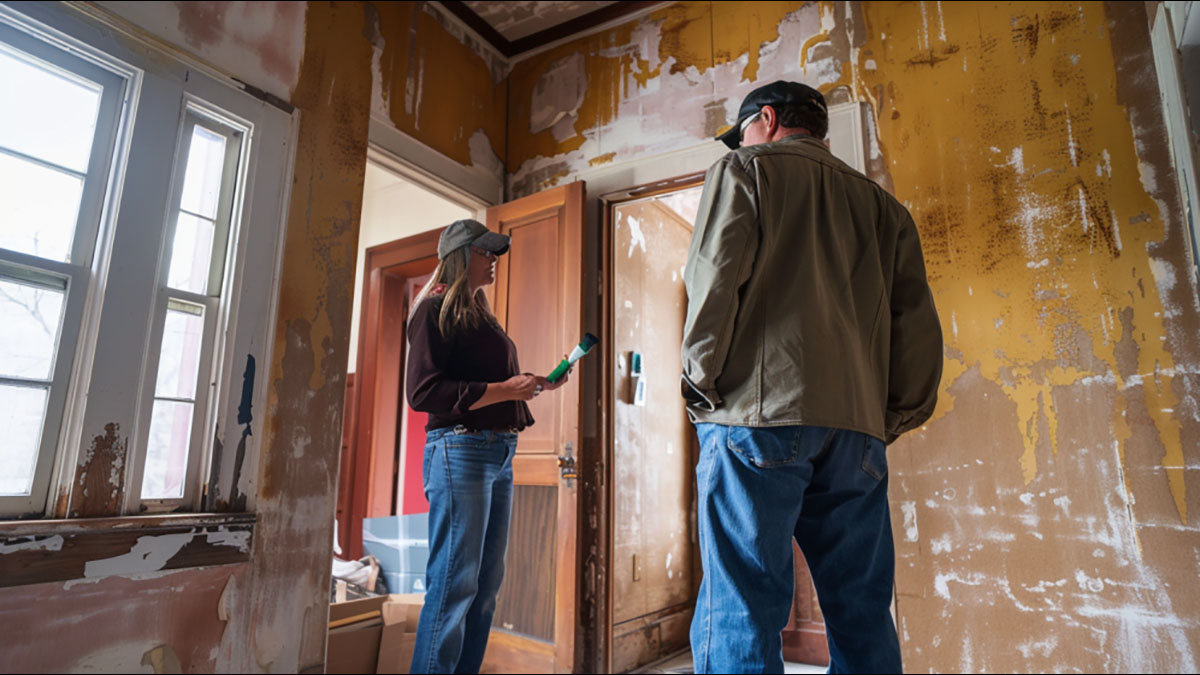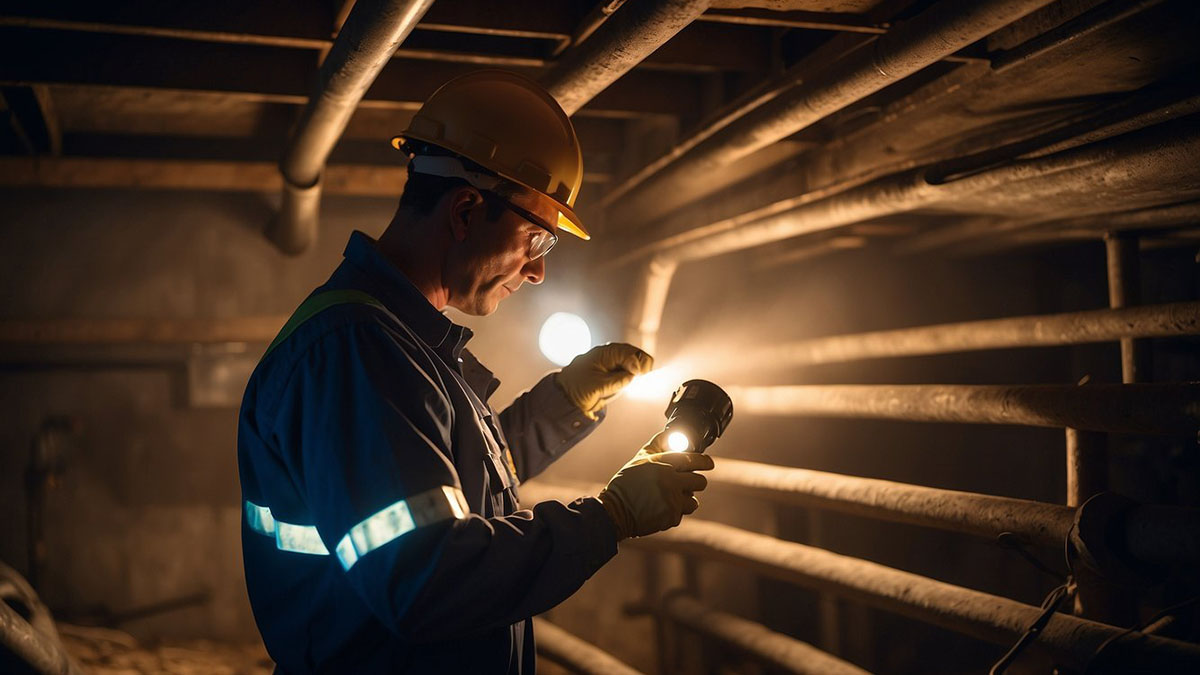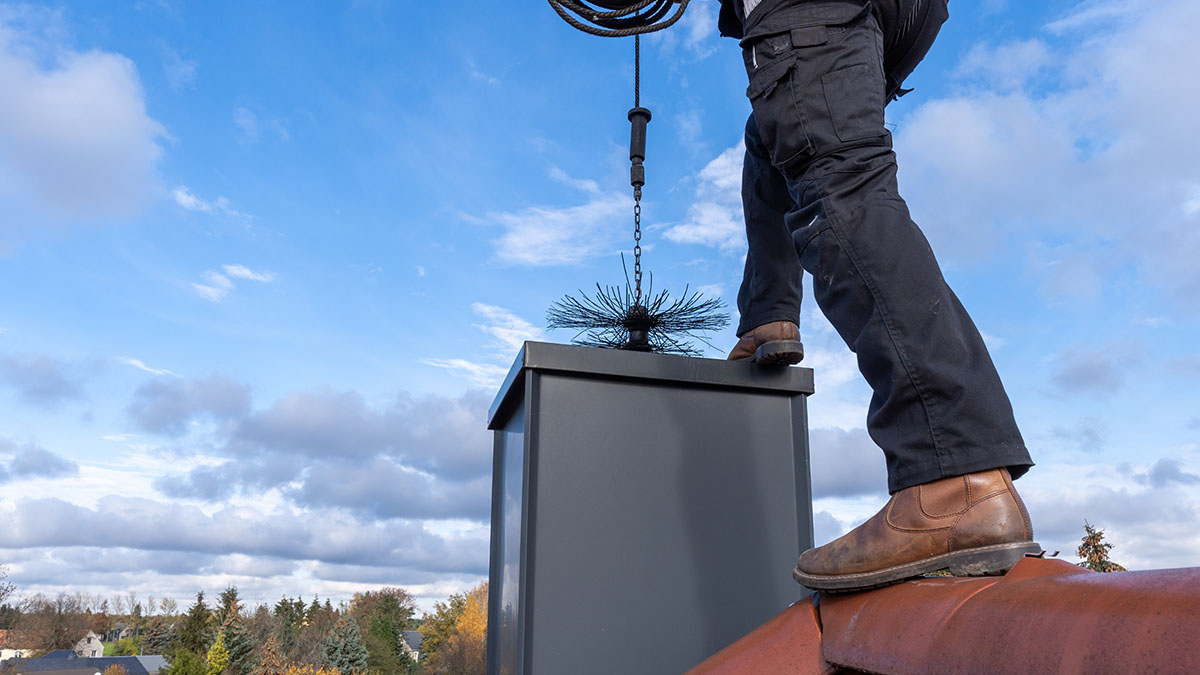You might wonder, “Why does my house smell like burning rubber?” This guide is here to help you understand and address this issue.
Ignoring this plastic smell doesn’t just compromise the comfort of your living space; it could also put your safety at risk.
The burning rubber smell in your home is more than just a nuisance. It’s a warning signal that something might be amiss. It could be an electrical issue, a problem with your HVAC system, or even a malfunctioning appliance.
Addressing a burning rubber smell in your home is crucial. It’s about ensuring the well-being of everyone living under your roof. It’s about maintaining a safe, comfortable, healthy environment for you and your loved ones.
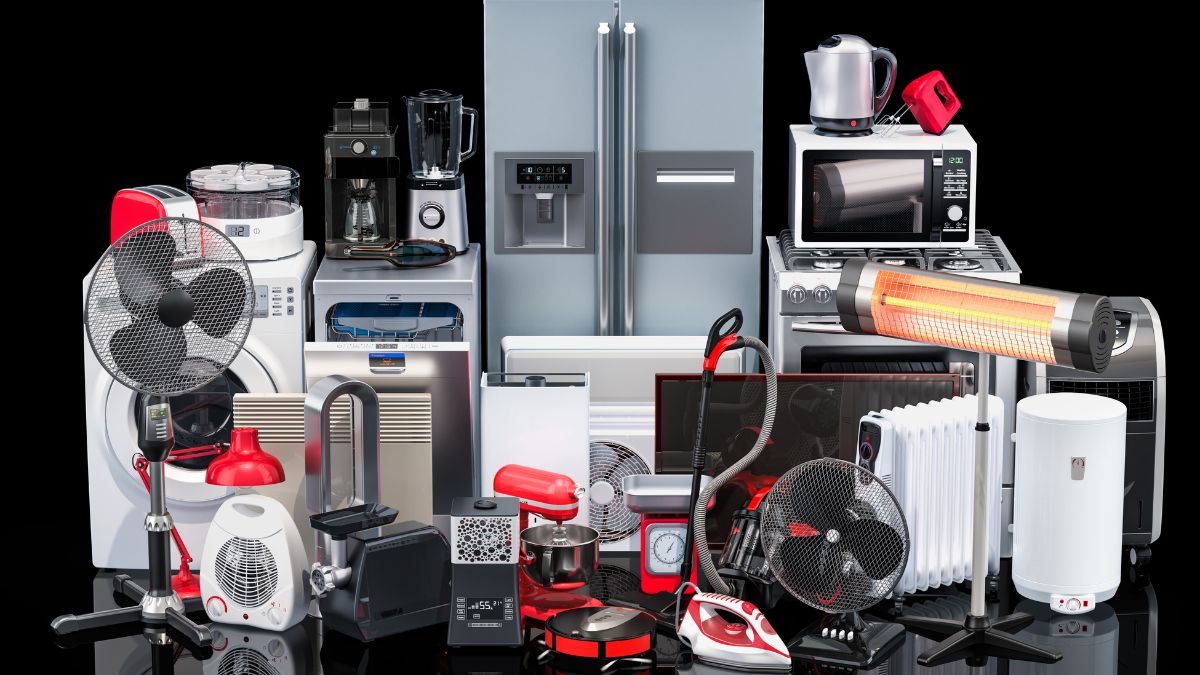
Common Causes of a Burning Rubber Smell in Your Home
A burning rubber smell in your home can be concerning and may indicate an underlying issue that needs attention. Identifying the source of the smell is crucial in determining the appropriate action to take.
If you suddenly notice a burning rubber smell in your home, a potential electrical issue is one of the first things to consider. Faulty wiring, overloaded circuits, or damaged electrical outlets can all emit a distinct musty odor.
3 Electrical Issues
- Faulty Wiring: The protective coating around wires can deteriorate over time, leading to exposed wires. These exposed wires can overheat and burn, producing a plastic smell like burning rubber.
- Overloaded Circuits: When too many electrical devices are plugged into a single circuit, they can become overloaded. This overload can cause the electrical wiring to overheat and smell burning.
- Damaged Electrical Outlets: An outlet that’s damaged or improperly installed can cause the plastic components to overheat and burn, producing a burning rubber type of smell.
Electrical issues are severe and can lead to fires. Always consult a professional electrician when dealing with these problems.
Your HVAC system works hard to keep your home comfortable. But when something goes wrong, it might produce a burning rubber smell in your home.
3 HVAC System Problems
- Overheating Components: Your HVAC system contains several mechanical parts that can overheat if they malfunction or the system is overworked. This overheating can produce a burning rubber smell.
- Belt Issues: A worn-out or misaligned belt can cause a burning plastic smell if your HVAC system uses a belt-driven motor.
- Lubrication Problems: Moving parts in your HVAC system need proper lubrication. Without it, these parts can overheat and emit a burning smell.
Don’t ignore a burning smell from your HVAC system. Contact a professional HVAC technician to inspect and repair your system.
3 Appliance Malfunctions
Appliances make our lives easier but can produce a burning rubber smell when malfunctioning.
- Overheated Motors: Many appliances, including washing machines, have motors that can overheat if the appliance is overused or if the motor is faulty. This overheating can produce a burning rubber smell.
- Damaged Wiring: Just like with your home’s electrical system, the wiring in your appliances can become damaged and produce a burning smell.
- Faulty Components: Other faulty components in your appliances, like a broken pump in your washing machine, can also cause a burning rubber smell.
Always unplug an appliance producing a burning smell and consult a professional appliance repair technician.
Plumbing issues might not be the first thing you think of when you smell burning rubber, but specific plumbing problems can produce this smell.
2 Plumbing Issues
- Sewer Gas Leak: If your home’s plumbing system isn’t adequately vented, sewer gases can build up and escape into your home, producing a smell often described as similar to burning rubber.
- Hot Plastic Pipes: If hot water runs through plastic pipes that aren’t rated for high temperatures, the pipes can overheat and smell burning.
Plumbing issues can be complex and challenging to diagnose, so it’s best to contact a professional plumber if you suspect a plumbing problem is causing the burning rubber smell in your home.
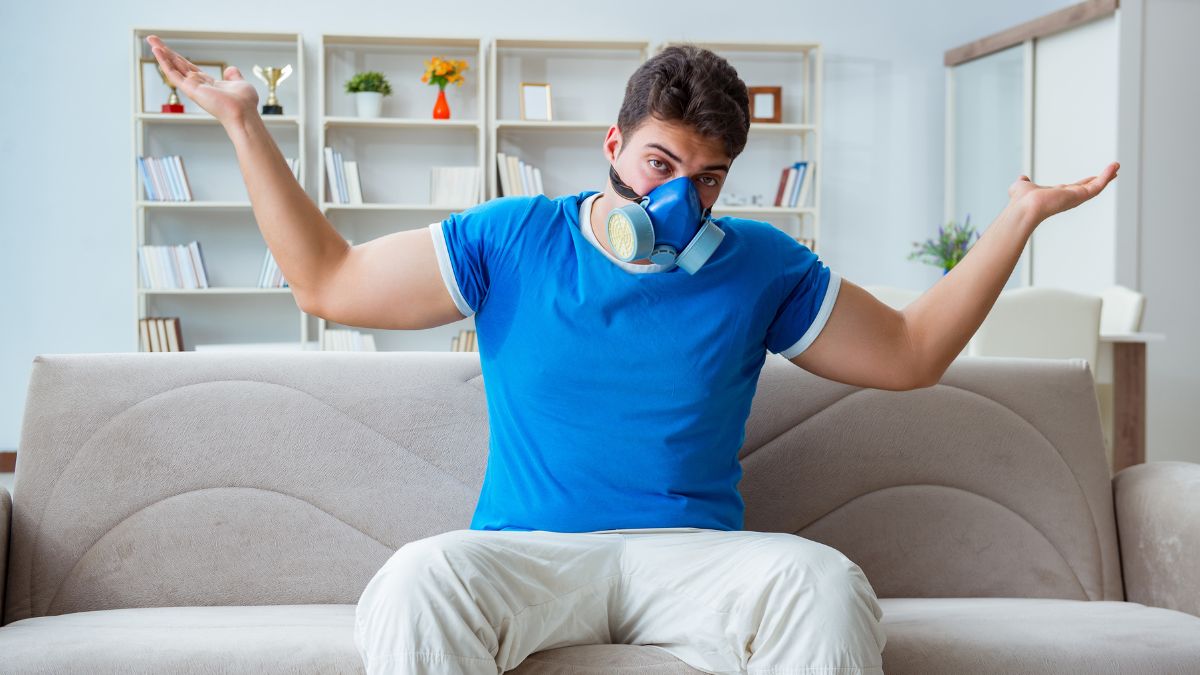
Health Risks Associated with Burning Rubber Smell in Your Home
Exposure to a burning rubber smell in your home can pose health risks, making it essential to address the issue promptly.
When you detect an electrical burning rubber smell in your home, it’s not just an unpleasant odor you’re dealing with. This smell can indicate the presence of potential toxins in your indoor air.
3 Potential Toxins in the Air
- Smoke Particles: When materials like rubber or plastic burn, they release smoke particles into the air. These particles can irritate your eyes, nose, and throat and cause coughing, wheezing, or shortness of breath.
- Volatile Organic Compounds (VOCs): Burning materials can also release VOCs, which are gases that can cause headaches, dizziness, and irritation of the eyes, nose, and throat. Some VOCs are also linked to long-term health effects like cancer.
- Carbon Monoxide: In some cases, a burning rubber smell could indicate the presence of carbon monoxide, a dangerous gas that can cause symptoms like headache, dizziness, nausea, and confusion. In high concentrations, carbon monoxide can be fatal.
Always take a burning rubber smell seriously. It’s not just about comfort; it’s about your health and safety.
3 Long-Term Health Effects
- Respiratory Issues: Chronic exposure to smoke particles and VOCs can lead to long-term respiratory issues like chronic bronchitis or decreased lung function.
- Cancer: Some VOCs are known carcinogens, which can cause cancer after long-term exposure.
- Neurological Effects: Chronic exposure to certain toxins can lead to neurological effects like memory loss, decreased cognitive function, or even damage to the nervous system.
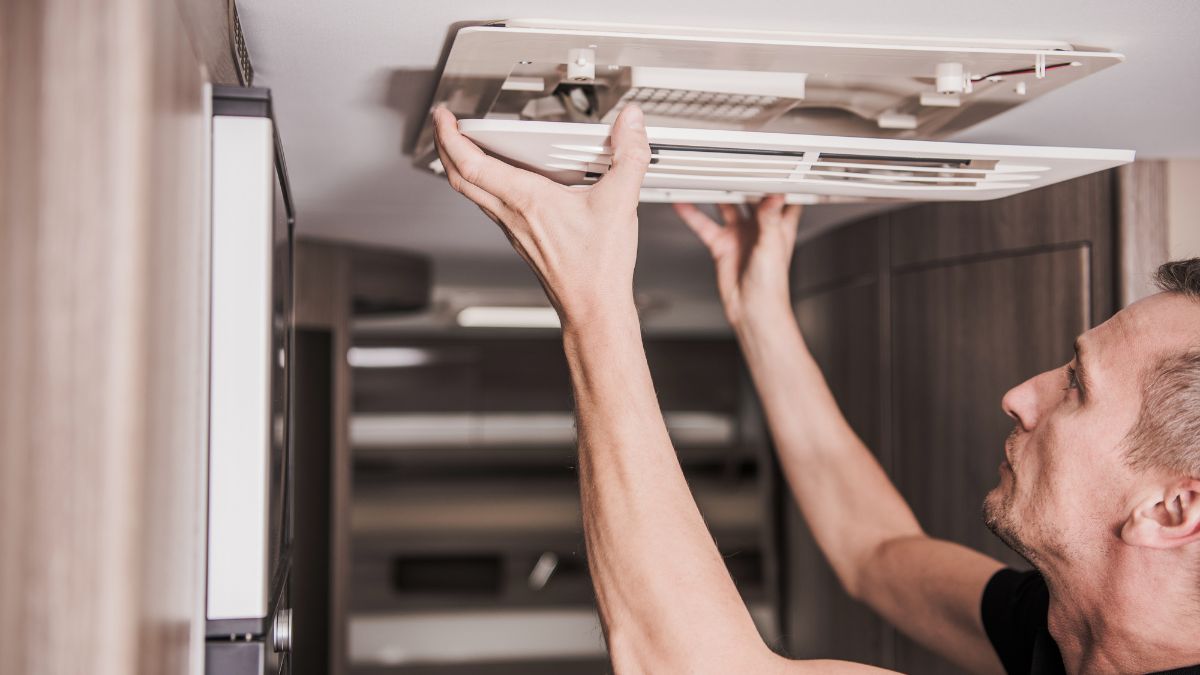
How to Identify the Source of the Smell?
Pinpointing the cause will help you address the issue and ensure your household’s safety and well-being.
Uncovering the source of a burning rubber smell in your home might feel daunting, but don’t worry. Here are some tips to guide you through the process:
5 Inspection Tips
- Follow Your Nose: The smell is most pungent near its source. Start by trying to identify the area where the smell is most potent.
- Check Your Appliances: Inspect your appliances, especially those recently used. Look for signs of overheating or damage.
- Inspect Your Electrical Outlets: Look for any signs of damage or discolouration on your electrical outlets, which could indicate overheating.
- Examine Your HVAC System: If the smell seems to be coming from your vents, it could be your HVAC system. Check for signs of overheating or belt issues.
- Look for Plumbing Problems: If the smell is most robust near your bathroom or kitchen, it could be a plumbing issue.
Don’t touch any electrical components if you suspect an electrical issue; don’t try to disassemble appliances or HVAC systems independently.
Other Factors to Consider
Addressing these potential causes and taking necessary precautions can improve indoor air quality, eliminate bad odors, and create a safer living environment for you and your family.
HVAC Systems and Air Filters
Air filters play a significant role in maintaining indoor air quality. A dirty air filter, commonly found in air conditioning and heating systems, can produce a musty smell.
What You Need To Know?
Regularly cleaning or replacing air conditioner filters is essential for preventing odors and ensuring optimal performance. To maintain adequate air circulation, check that your air conditioning systems, heat pumps, and water heaters are functioning correctly.
Heat Sources and Electrical Appliances
Heat sources such as electric heaters, wall heaters, or kitchen appliances can emit pungent smells resembling burning rubber when malfunctioning. Having these devices inspected by a licensed electrician to identify any faulty parts or electrical issues is crucial.
This inspection should extend to furnace motors, fan motors, and heat registers to ensure proper functionality and prevent potential hazards.
Lighting Fixtures and Bulbs
Different types of lighting fixtures can emit distinct odors. Fluorescent lamps, for instance, may release a slight smell due to the gas inside the tube, while incandescent lamps typically do not produce any odor.
However, suppose you notice a burning rubber smell around your light fixtures. In that case, it’s essential to have a professional inspect the connections, arc tubes, and arc tube seals to ensure safety and prevent potential issues.
Wood-Burning Stoves and Chimneys
If you have a wood-burning stove or fireplace, a rubber-like smell could stem from burning rubber components, such as seals or gaskets. Regularly clean and maintain your wood-burning stove, ensuring the flue is not leaky and has no black soot markings.
Consider hiring a professional sweeper to inspect and clean your chimney, minimizing the risk of odors and potential fire hazards.
What You Should Consider?
Be cautious of the smell of flammable methane and hydrogen sulfide, often compared to a rotten egg smell, which could indicate a gas leak. In such cases, leave the area immediately and contact your fuel provider or emergency services.
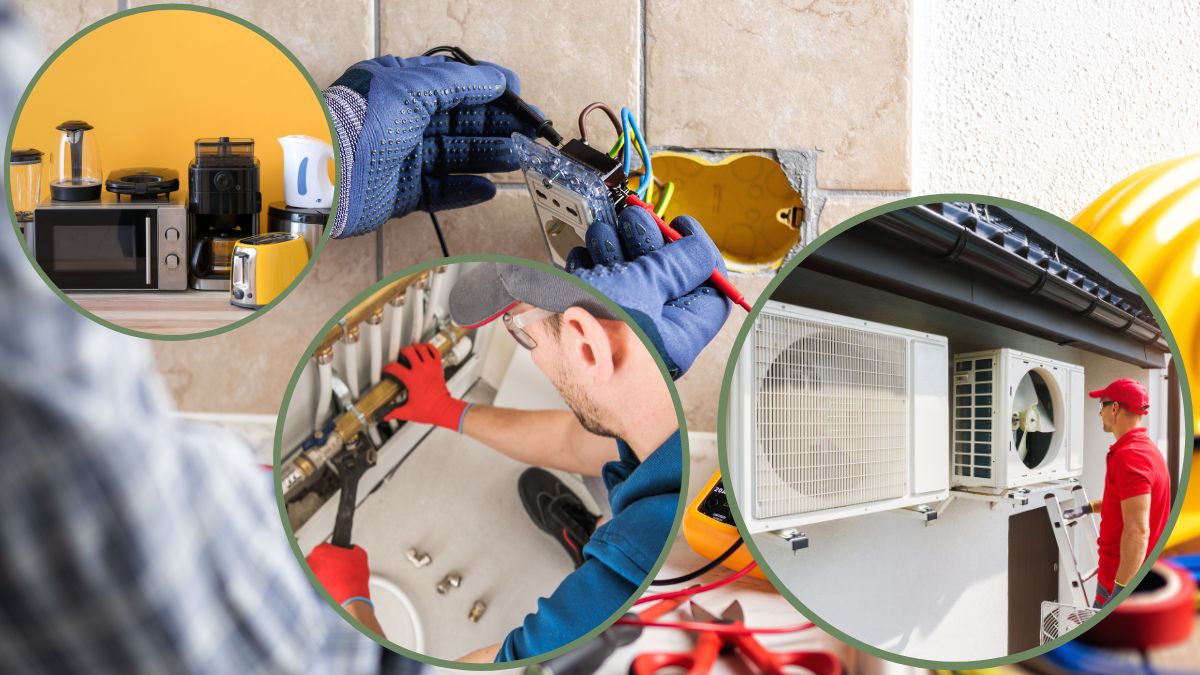
Solutions and Prevention
Once you have identified the source of the burning rubber smell in your home, you can take the following solutions and preventive measures.
It’s crucial to act swiftly when dealing with electrical issues that cause a burning rubber smell in your home. Here’s what you can do.
Addressing Electrical Issues
Turn Off the Power: If you suspect an electrical issue, the first step is to turn off the power to the affected area. This can help prevent further damage and potential fire hazards.
Call a Professional: Electrical work is not a DIY job. Always call a professional electrician to inspect and repair any electrical issues in your home.
Regular Inspections: Regular electrical inspections can help catch potential issues before they become serious problems. Consider scheduling annual inspections with a professional electrician.
Maintaining your HVAC system is key to preventing a burning rubber smell in your home. Here’s how to keep your system in top shape.
HVAC System Maintenance
Regular Maintenance: Regular maintenance, including cleaning and inspections, can help keep your HVAC system running smoothly and prevent issues that could cause a burning smell.
Replace Old Belts: If your system uses a belt-driven motor, replace old or worn-out belts. A faulty belt can overheat and cause a burning smell.
Professional Inspections: Have a professional HVAC technician inspect your system at least once a year. They can spot potential issues and make necessary repairs.
Appliances are a common source of a burning rubber smell in the home. Here’s how to address and prevent these issues.
Appliance Checks and Repairs
Regular Inspections: Regularly inspect your appliances for signs of damage or wear or deteriorating rubber belts. Pay special attention to any appliances running hot or making unusual noises.
Professional Repairs: Call a professional appliance repair technician if you notice any issues during your inspections. They can safely and effectively address the problem.
Proper Use: Always use your appliances as directed by the manufacturer. Overloading or improperly using your appliances can cause them to overheat and produce a burning smell.
While it might not be the first thing that comes to mind, plumbing issues can cause a burning rubber smell in your home. Here’s how to address and prevent these issues.
Plumbing Maintenance
Regular Inspections: Regularly inspect your plumbing system for signs of leaks or damage. Pay special attention to areas around your sinks, toilets, and showers.
Professional Repairs: Call a professional plumber if you notice any issues during your inspections. They can safely and effectively address the problem.
Proper Use: Always use your plumbing system as intended. Avoid flushing inappropriate items down the toilet or pouring harmful substances down the drain.
5 Essential Expert Tips
A burning rubber smell in your home can cause concern, as it may indicate an underlying issue that needs attention. Understanding the potential causes and taking appropriate measures can help you address the problem effectively.
#1. Check and Replace Air Filters Regularly
Dirty air filters in your HVAC system can cause unpleasant odors to circulate throughout your home. A dirty filter restricts airflow and can lead to a burning rubber smell.
Ensure to clean or replace air filters as the manufacturer recommends to maintain good air quality and prevent odors.
#2. Inspect Blower Motors and Furnace Components
Faulty blower motors or oil furnaces can emit pungent smells resembling burning rubber. Schedule regular maintenance for your heating and cooling systems.
Have a professional technician inspect the blower motor, heat exchanger, and other components to identify any issues causing the smell.
#3. Address Potential Heat Sources
Specific heat sources in your home, such as heat registers, electric heaters, or even kitchen appliances, can generate odors resembling burning rubber if they malfunction.
Ensure that these heat sources are in proper working condition and have them inspected by a licensed electrician if you notice any unusual smells.
#4. Maintain Cleanliness and Proper Ventilation
A musty or dusty smell can sometimes be mistaken for a burning rubber smell. Regularly clean light fittings, furnace motors, and heat registers to prevent the accumulation of dust or debris that could contribute to unpleasant odors.
Ensure adequate air circulation in your home by opening windows or using fans, especially during summer.
#5. Try Natural Remedies
You can use simple household solutions if you detect a rubber-like odor in your home. Place bowls of white vinegar around the affected areas to help absorb and neutralize the smells.
Also, consider using air purifiers or humidifier filters with machine-washable clean filters to improve indoor air quality and reduce odors.
Important
Detecting a burning rubber smell in your home should be taken seriously, as it could indicate hazards such as toxic fumes or electrical malfunctions. If the smell persists or you are unsure about its source, it’s always best to consult professional services.
An HVAC technician, electrician, or licensed inspector can help identify and resolve the issue, saving you from potential hazards and thousands of dollars in damages.
While it’s good to have a basic understanding of what might be causing a burning rubber smell in your home, knowing when to call a professional is essential.
When To Call A Professional?
- Electrical Issues: If you suspect an electrical issue, it’s time to call a professional electrician. Electrical work can be dangerous and should always be left to the professionals.
- HVAC System Problems: If your HVAC system seems to be the source of the smell, contact a professional HVAC technician. They have the tools and knowledge to inspect and repair your system safely.
- Appliance Malfunctions: If an appliance is the source of the smell, unplug it and contact a professional appliance repair technician.
- Plumbing Issues: If you suspect a plumbing issue, contact a professional plumber. Plumbing systems can be complex, and a professional can help diagnose and repair the problem.
What You Need To Know?
Don’t risk your safety by trying to fix serious issues alone. When in doubt, it’s always best to call a professional. They can help ensure the problem is properly and safely resolved, so you can return to enjoying a safe, comfortable, and odor-free home.
Burning Rubber Smell in Your Home FAQs
Here are some of the most common questions people have about a burning rubber smell in their homes:
How can I prevent a burning rubber odor in my home?
Regular maintenance of your electrical system, HVAC system, appliances, and plumbing can help prevent issues that cause a burning rubber smell. This includes regular inspections and timely repairs.
What gas smells like burning rubber?
A gas furnace leak, such as natural gas or methane, can sometimes smell like burning rubber.
What does an electrical burn smell like?
An electrical burn typically emits bad odors, like burning or melting plastic.
What does it mean when the air smells like rubber?
When the air smells like rubber, it may indicate the presence of a potential hazard, such as an issue with electrical connections, overheating appliances, or burning materials.
When it comes to a burning rubber smell in your home, it’s always better to be safe than sorry. Don’t ignore the smell, and don’t hesitate to seek professional help.
Final Thoughts on Burning Rubber Smell in Your Home
Dealing with a burning rubber smell in your home can be unsettling, but remember, you’re not alone. This guide is here to help you navigate this issue.
From identifying potential causes to understanding the health risks and finding solutions, you now have the knowledge to tackle this problem head-on. Remember, your safety is paramount. Don’t hesitate to call in professionals when needed.
With vigilance and regular maintenance, you can keep your home safe, comfortable, and free from the distressing smell of burning rubber. You’ve got this, and we’re here to help every step of the way.


